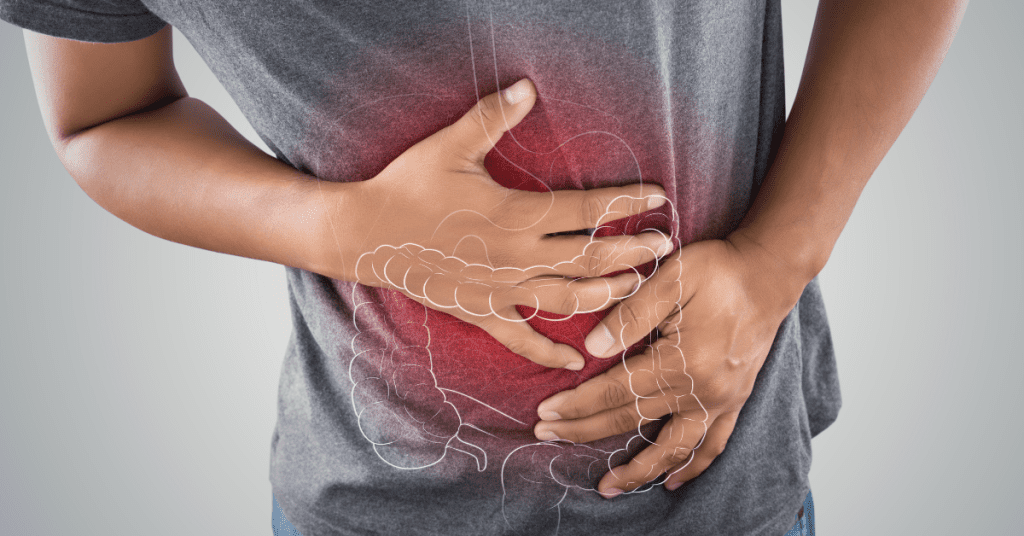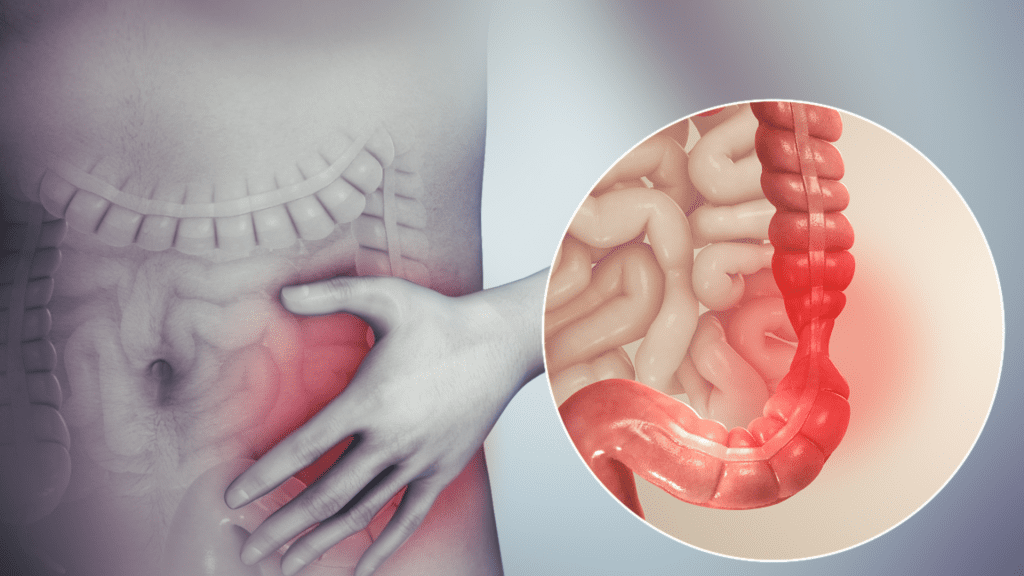Colorectal cancer is one of the most common and deadliest cancers worldwide, often developing without symptoms in its early stages. While genetics play a role, lifestyle and environmental factors significantly impact the risk of developing the disease.
Understanding the causes and risk factors can help in early detection and prevention. Here are the key factors that may increase the risk of colorectal cancer, along with warning signs and preventive measures.
People at Higher Risk of Colorectal Cancer

Certain individuals are more susceptible to colorectal cancer due to genetics, medical history, and lifestyle choices. If you fall into any of these categories, regular screenings and lifestyle changes may help lower your risk.
1. People with Long-Term Ulcerative Colitis
Individuals with chronic ulcerative colitis who do not receive proper treatment may develop persistent inflammation and ulcers in the colon, increasing the risk of colorectal cancer. The longer the inflammation persists, the greater the likelihood of cancerous changes in the colon’s lining.
2. Family History of Colorectal Cancer
Having a first-degree relative (parent or sibling) with colorectal cancer doubles or triples the risk of developing the disease. This risk is even higher if the relative was diagnosed before the age of 60.
3. Age Over 50
Colorectal cancer is more common in individuals over 50, but cases in younger adults have been rising. Some people are diagnosed in their 20s or 30s, though the numbers remain lower at these ages.
4. History of Colorectal Polyps
Certain types of polyps, especially large or multiple polyps, increase the likelihood of colorectal cancer. Regular colonoscopies help detect and remove polyps before they turn cancerous.
Lifestyle Factors That Increase Colorectal Cancer Risk
While genetic factors play a role, lifestyle choices significantly influence the risk of developing colorectal cancer. Adopting a healthier lifestyle may lower your chances of developing this disease.
1. Unhealthy Dietary Habits
A diet high in processed foods and animal fats is strongly linked to colorectal cancer. Risk factors include:
- Excessive red meat consumption (especially processed meats like bacon, sausages, and hot dogs).
- Foods with preservatives and artificial additives, such as pickled, smoked, or heavily processed foods.
- Low fiber intake, which slows digestion and increases the risk of toxins accumulating in the colon.
2. Lack of Physical Activity
A sedentary lifestyle contributes to obesity and increases cancer risk. Prolonged sitting and a lack of exercise can lead to slower digestion and prolonged exposure to toxins in the digestive tract.
3. Obesity
Excess body fat increases inflammation, alters hormone levels, and contributes to higher colorectal cancer risk. Obese individuals are at greater risk of developing aggressive tumors.
4. Smoking
Tobacco use is linked to numerous cancers, including colorectal cancer. Smokers are at a significantly higher risk of developing and dying from the disease compared to non-smokers.
5. Excessive Alcohol Consumption
Heavy alcohol intake is associated with increased risk of colorectal cancer. Alcohol damages intestinal lining, alters gut bacteria, and increases inflammation—all contributing factors to cancer development.
Early Warning Signs of Colorectal Cancer

Colorectal cancer often develops silently, but certain symptoms may appear as the disease progresses. If you experience any of these symptoms persistently, seek medical attention immediately.
1. Digestive Disorders
Colorectal cancer affects digestion and can cause:
- Frequent acid reflux and burping.
- Stomach pain or discomfort before or after eating.
- Bloating or cramping, especially near the navel.
- Persistent loss of appetite and indigestion.
If digestive issues last for weeks or months, it’s essential to rule out serious underlying conditions.
2. Unexplained Weight Loss
Sudden, unexplained weight loss can be a sign of various cancers, including colorectal cancer. If you lose weight without changes in diet or exercise, consult a doctor.
3. Bowel Movement Disturbances
The colon regulates waste elimination, and any disruption could signal an issue. Symptoms to watch for include:
- Alternating constipation and diarrhea over a prolonged period.
- Frequent, urgent bowel movements.
- Feeling of incomplete bowel emptying.

4. Narrow or Thin Stool
A change in stool shape and size could indicate a colon obstruction due to a tumor. If your stool becomes pencil-thin or shaped like a grain of rice, you should seek medical advice.
5. Blood in Stool
One of the most alarming symptoms of colorectal cancer is the presence of red or dark blood in stool. This may be accompanied by:
- Prolapsed rectum.
- Significant weight loss.
- Frequent and painful bowel movements.
Blood in the stool is not always due to cancer, but it should never be ignored.
6. Fatigue and Weakness
Many colorectal cancer patients experience persistent fatigue and weakness, often due to anemia from blood loss in the stool. If you feel tired even after resting, it may be a sign of an underlying issue.
How to Lower Your Risk of Colorectal Cancer
Although colorectal cancer can be life-threatening, adopting a healthier lifestyle and undergoing regular screenings can reduce your risk.
1. Maintain a Healthy Diet
- Limit red and processed meats.
- Increase fiber intake from whole grains, fresh fruits, and vegetables.
- Consume antioxidant-rich vitamins (A, C, E) to support colon health.
2. Stay Active
- Exercise regularly to improve digestion and blood circulation.
- Avoid prolonged sitting and incorporate movement into your daily routine.
3. Maintain a Healthy Weight
- Keep your weight under control to lower inflammation and reduce cancer risk.
- Avoid excessive calorie intake and focus on balanced nutrition.
4. Quit Smoking and Reduce Alcohol Consumption

- Smoking and alcohol both increase the likelihood of colorectal cancer.
- Cutting back on these harmful habits significantly reduces your risk.
5. Get Regular Screenings
- Colonoscopy screenings can detect precancerous polyps early, preventing cancer development.
- Individuals over 50 (or younger with a family history of colorectal cancer) should schedule regular check-ups.
Final Thoughts: Prevention is the Best Cure
Colorectal cancer is a serious but preventable disease. Recognizing early warning signs and making healthier lifestyle choices can dramatically reduce your risk.
If you experience persistent digestive issues, unexplained weight loss, blood in stool, or unusual fatigue, consult a healthcare provider immediately.
Through proper diet, regular exercise, and medical screenings, you can take control of your health and prevent colorectal cancer before it starts.


